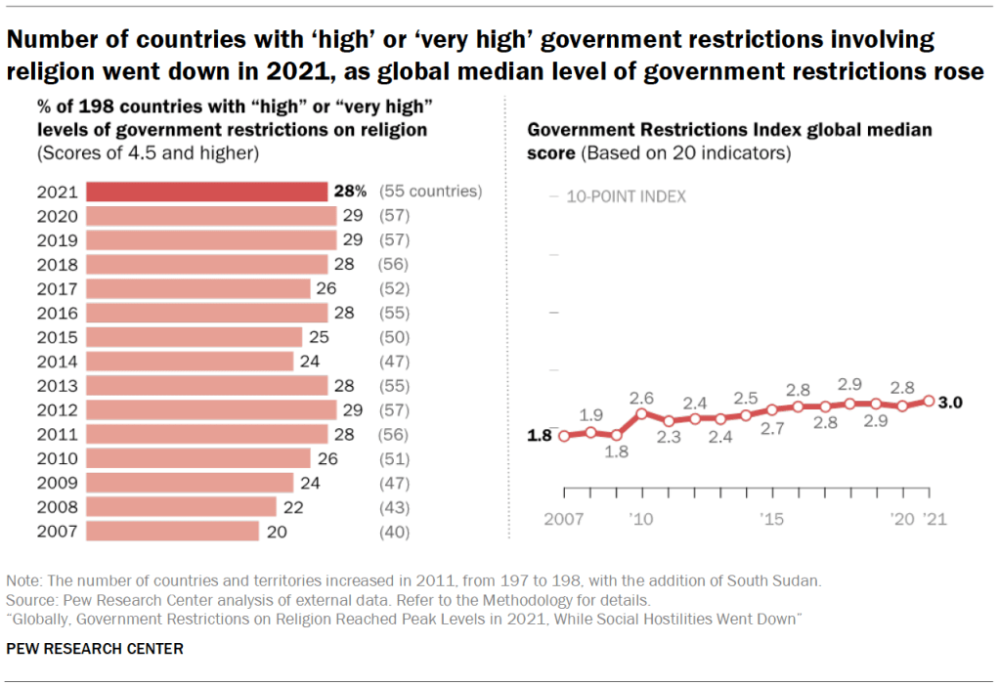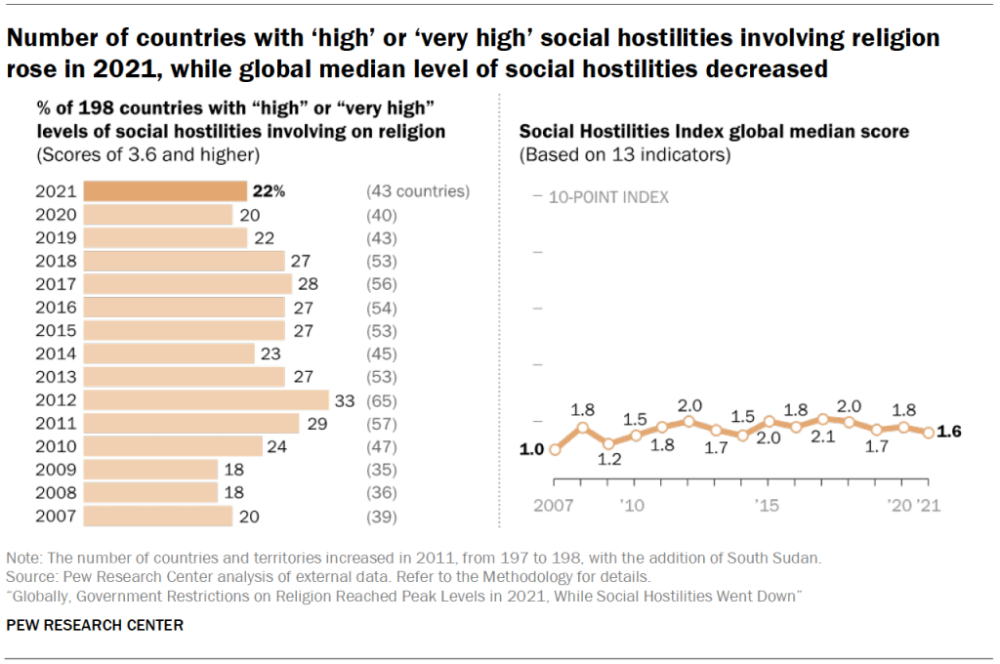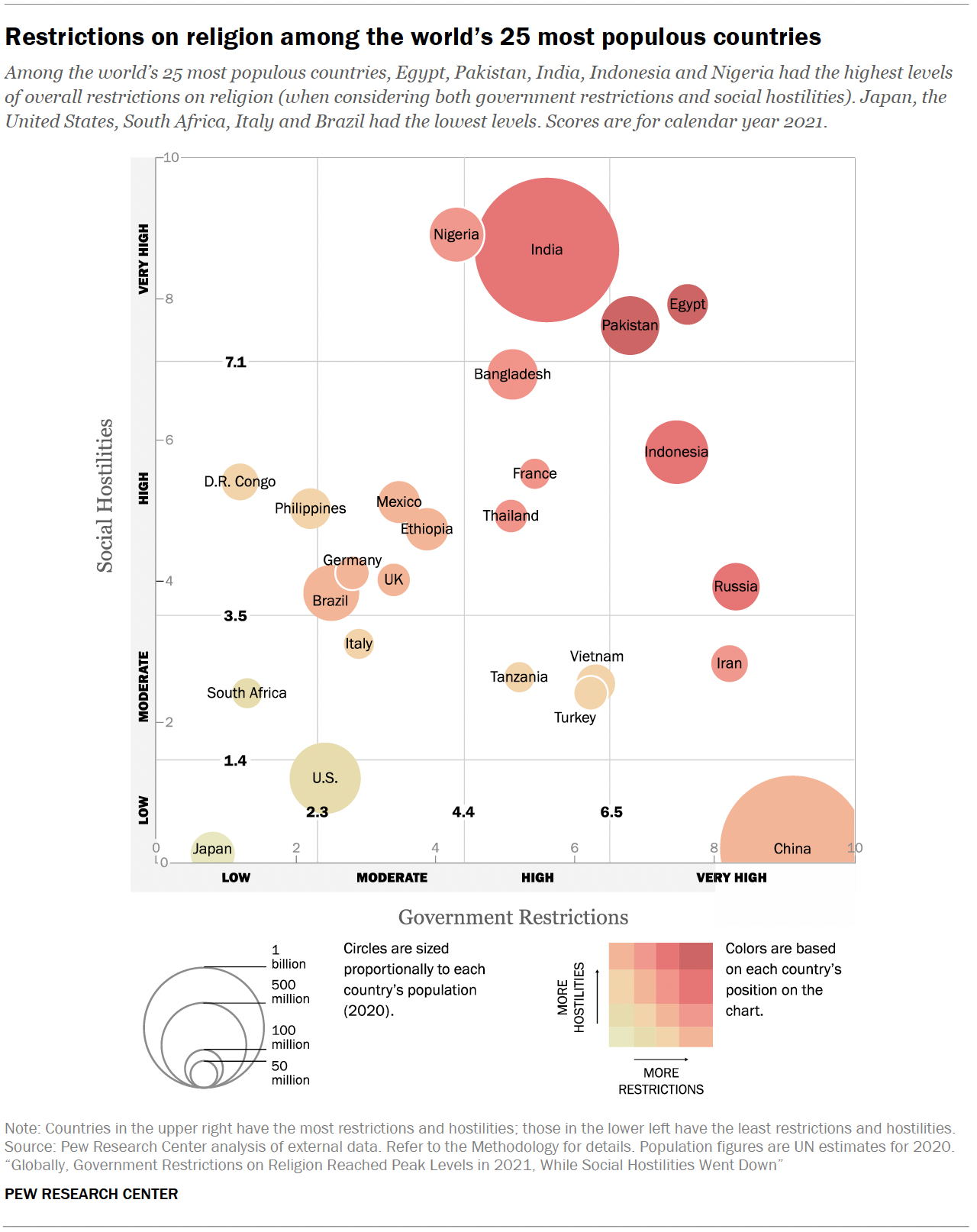KUALA LUMPUR, March 12 — Religious restrictions in Malaysia have dwindled over the years, a recent study on 198 countries by Washington-based Pew Research Center released last week has shown.
Measured by two indices called the Government Restrictions Index (GR) and Social Hostilities Index (SHI), the most recent data of Malaysia in 2021 showed that the country scored 7.7 and 3.3 in both respectively.
In comparison, it had scored 8.5 and 3.5 respectively in 2020, which was markedly higher than the baseline year of 2007 (6.4 and 1.0). A higher score indicates a higher restriction.
Despite that, GRI showed that government restrictions on religion in Malaysia continue to persist at a “very high” level, with Malaysia lumped together in the worst category of “very high” with other countries which scored 6.6 and higher.

In Asia-Pacific, the only countries which ranked higher than Malaysia in GRI were Afghanistan, China, Iran, Tajikistan and Uzbekistan.
Neighbouring Myanmar scored the same as Malaysia, while Indonesia ranked lower at 7.4, followed by Singapore (6.9) and Brunei (6.5).
For SHI, Malaysia was categorised into the “moderate” group for those ranking 1.5 to 3.5.
Pew said the GRI measures government laws, policies and actions that restrict religious beliefs and practices, including efforts by governments to ban particular faiths, prohibit conversion, limit preaching or give preferential treatment to one or more religious groups.
Meanwhile, the SHI measures acts of religious hostility by private individuals, organisations or groups in society such as religion-related armed conflict or terrorism, mob or sectarian violence, harassment over attire for religious reasons and other forms of religion-related intimidation or abuse.

Malaysia was also mentioned in the report in a section analysing 161 countries with governments that provide benefits to religious groups but, at the same time, harass religious groups and interfere in worship.
Citing the US State Department’s International Religious Freedom Report, it pointed to how the Department of Islamic Development Malaysia (Jakim) provided funds for mosque projects, and while no funds were specifically allocated for non-Muslim groups, temples and churches also received funding. It also highlighted how 1,145 Hindu temples received government funding from December 2020 to May 2021.
In its overall findings, Pew said the global median level of government restrictions on religion ticked up to 3.0 in 2021 from 2.8 in 2020 on the GRI, a 10-point scale of 20 indicators.
“This was the highest global median score since we began tracking restrictions in 2007,” it added.
The study also said religious groups faced harassment by governments in 183 countries in 2021, the largest number since the study began.
“Governments interfered in worship in 163 countries, down slightly from 164 in 2020 but still close to the all-time high,” it said.
Article 3(1) of the Federal Constitution states that Islam is the religion of the federation, but other religions may be practised in peace and harmony.























